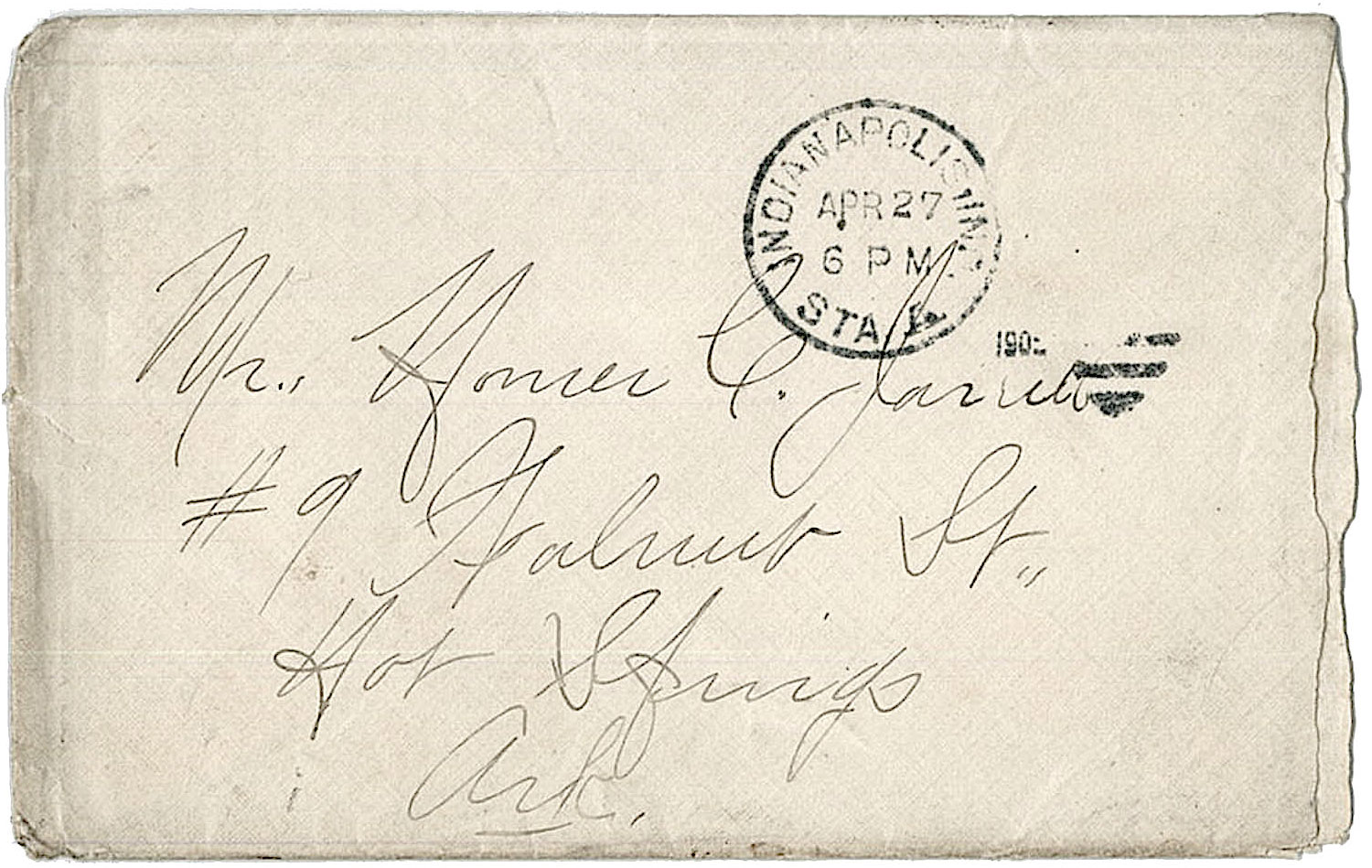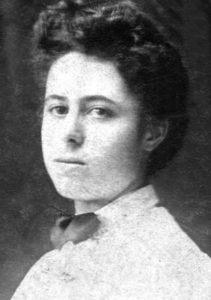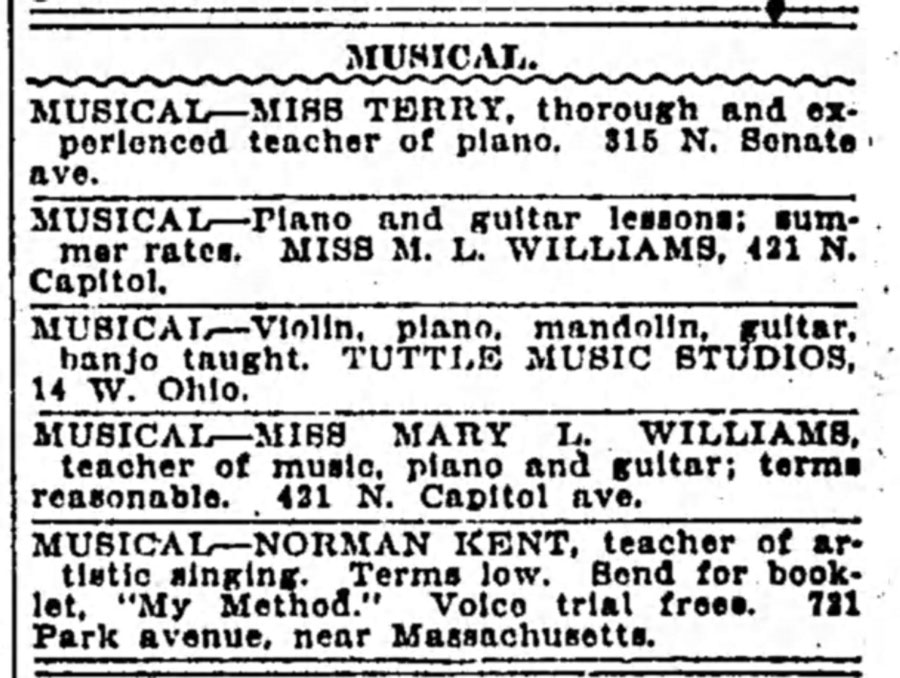
Homer Jarrett
9 Walnut St.
Hot Springs, Ark
2730 Kenwood Ave.
Indianapolis, Indiana
April 26, 1905
Dear Homer;
Your letter came today and I was very glad to hear from you. I have but just written to mother and thought I would “speak” with you too.
Glad you had a nice Easter, Homer, for mine was a “grand failure” I think the most pleasure I had that day was a fifteen, twenty minute walk home with my cousin on the way from a friends house. He was so full of his troubles and trials that in trying to make him forget his, I forgot my own.
I received a very nice book a few days ago “The Eternal City” by Hall Caine. I think I have read it but never owned it before.
You wonder why I did not accompany mother away? Well I didn’t. I did want to go, but still, I wanted to take a few more lessons in music and I stayed for that purpose solely. I have a real nice elderly lady teaching me now, a Miss Williams. Mother wanted me to go badly and only yesterday her letter tells me not to stay away too long. I don’t think I shall go this year.
The question you mention is, if I had told another of I struggle of warfare(?), is it not? Well, I have not.
Glad your mother is improving so nicely.
We are having just typical April weather here now sunshine-cloud-rain-snow-hail all in one day.
I received no flowers Easter. I was not disappointed and didn’t expect any. I saw and admired them though.
Thank you for thinking of me at that time. I am grateful for it.
Good-by
Yours Sincerely
Pearl Reed
_________________
I wish I knew who the cousin was who was having such a hard time. Pearl’s older sister, Josie, had two children – a boy and a girl about pearl’s age. I cannot trace them so I don’t know if this cousin is that boy or not.
The Eternal City (click link to see original review)
Hall Caine (1853–1931)
Eternal City, The, by Hall Caine was published in 1901. The story opens in London, where Prince Volonna, who has been exiled for conspiracy against the Italian government, lives a life of charity under an assumed name, being known as Dr. Roselli. He rescues from the snow, a street waif, David Leone, who is one of the many who are brought to England yearly from the south to play and beg in the streets. This lad grows up in the household of the good doctor and his English wife and little daughter Roma, imbibing his foster father’s theories and becoming his disciple. Prince Volonna is finally tricked back to Italy, where he is captured and transported to Elba, and David Leone is likewise condemned as a conspirator; the latter escapes, and as David Rossi enters Rome and preaches his principle of the brotherhood of man. After the death of her father, Roma is discovered by the Baron Bonelli, Secretary of State, and a man of cunning and duplicity, who brings her to Rome where she becomes the reigning belle of the capital, but one whose name has not remained untarnished. The author recounts her meeting with David Rossi, her recognition of her foster brother, their love and the various obstacles which beset their path. In ‘The Eternal City’ Mr. Caine has presented a sociological study with a strong element of love-making in it. Through the efforts of a humanizing socialism, the principles of which are based upon the Lord’s Prayer, the Pope resigns all temporal power and the young King is brought to abdicate his throne, and an ideal republic is born, whose creed is the brotherhood of God and the brotherhood of man. The story, with its background of Rome the Eternal city, is thrilling in detail and holds the reader’s attention by the intricacies of its plot and the brilliancy of its author’s dramatic style.
Miss Mary L. Williams was born September 5, 1837 in Beares, Pennsylvania. Her father, Louis, was a school teacher. Her mother, Rebecca, did not work outside the home. The family were members of the United Presbyterian Church.
By the time Mary was 23, she was teaching music. Between 1870 and 1880, Mary’s mother died and she and her father moved to Indianapolis. He taught Latin and died in 1888. Mary continued to teach music, both guitar and piano. She died of a cerebral hemorrhage in Indianapolis on April 23, 1916.
By 1916, my grandmother Pearl was married to my grandfather, Albert B. Cleage. The first three of their seven children had been born. They lived in Detroit, Michigan where my grandfather practiced medicine.

